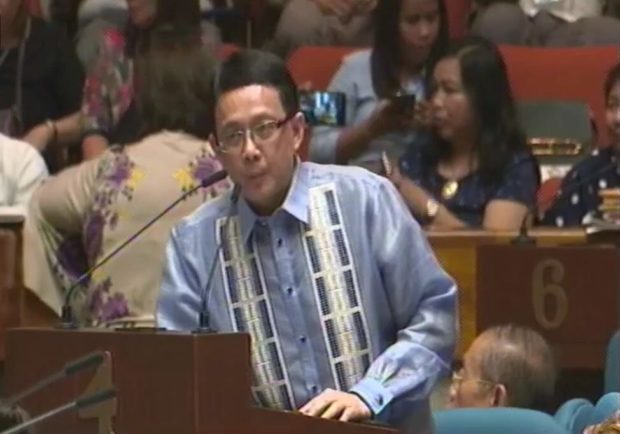
Northern Samar Rep. Paul Daza. (INQUIRER.net file photo)
MANILA, Philippines — Northern Samar 1st District Rep. Paul Daza on Wednesday called for a revisit of the country’s licensure exam policies, suggesting that alternative licensure routes be established to give non-passers a chance.
In a privilege speech delivered on Wednesday, Daza said a developing country like the Philippines should develop its workforce to improve the economy, but the very high standards set by licensure exams hinder this goal.
“The development of Human Capital is a pillar of a thriving economy. Simply put, the robust growth of the economy — and this is a universal truth — significantly relies on a strong, highly-skilled, deeply-motivated, and inspired professionals. The talent of the Filipino is universally valued and sought after,” Daza said.
“Recent data gathered from the PRC shows the passing rate in 36 professions from 2017 to 2022 is only 40.81 percent. This is less than half of the number of examinees. This means over half of our examinees failed,” he noted.
Daza further stressed that the country had low passing rates in sectors where interested and dedicated workers were needed the most — like in agricultural-related industries:
- 31.56% for elementary education
- 41.25% for secondary education
- 24.36% for certified public accountants
- 33.18% for fisheries technologists
- 36.92% for agriculturists
“How can an archipelagic nation with an oceanic area larger than its land area and only one-third of its aspirants are passing the licensure exam […] What would happen to our goal towards food security, which our president — who also serves as the agriculture secretary — declared as a top priority?” Daza said.
“We need to understand what are the causes of this low passing rate. And not only that, we need to understand, is our system of running our licensure system still correct?”
According to Daza, such a system where more students fail in licensure exams compared to those who pass are disadvantageous to poor families, who struggle in sending their children to school only to be restricted by examinations.
In response to the issue, the lawmaker suggested that non-passers can use another route, like a system where there is an apprenticeship program where the failing students get the necessary skills for their career path.
“Is it worth considering an apprentice program, under a licensed professional, for say, three years, and then automatically qualify for a license given a set of requirements? This will encourage regional human capital development and grow the professional workforce base,” Daza explained.
“I hope this matter will merit our urgent attention. We need more professionals in our nation-building. More importantly, everyone deserves a chance at a better life. If education is indeed a great equalizer, I hope we take it upon ourselves to ensure that this will truly be so,” he added.
While stories about licensure exams usually focus on the students or schools with the highest scores or passing rates, there have been several instances where problems that Daza mentioned surfaced.
Just this January 2023, PRC announced that only one of the 17 individuals who took the Real Estate Consultant Licensure Examination passed.
Last December 2020, Sen. Joel Villanueva proposed a review of the Licensure Examination for Teachers (LET), due to the low passing rate of around 30% in the past several years.

